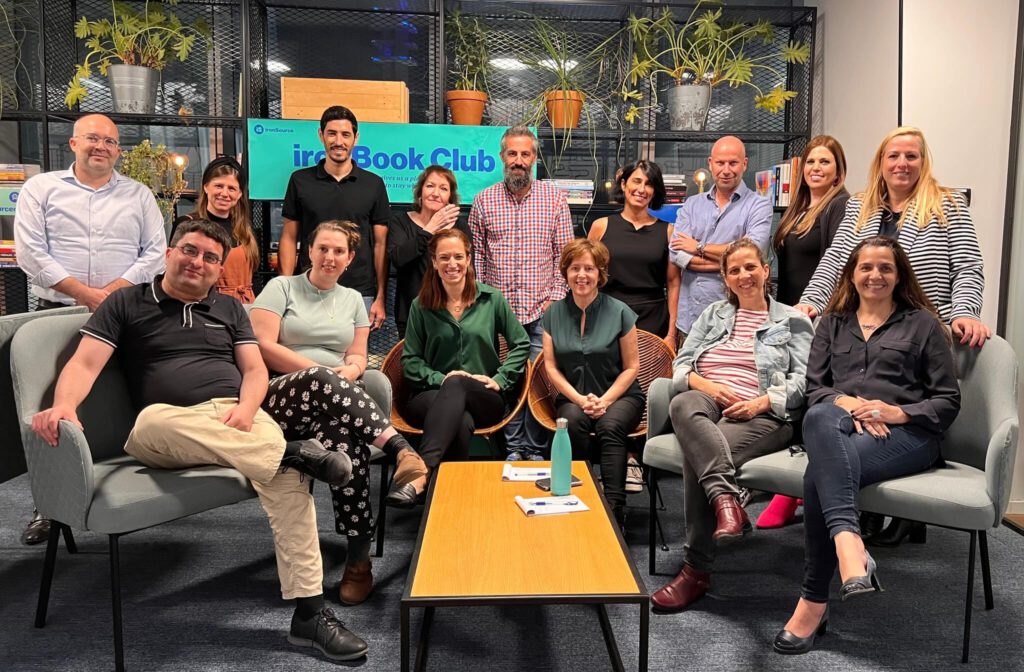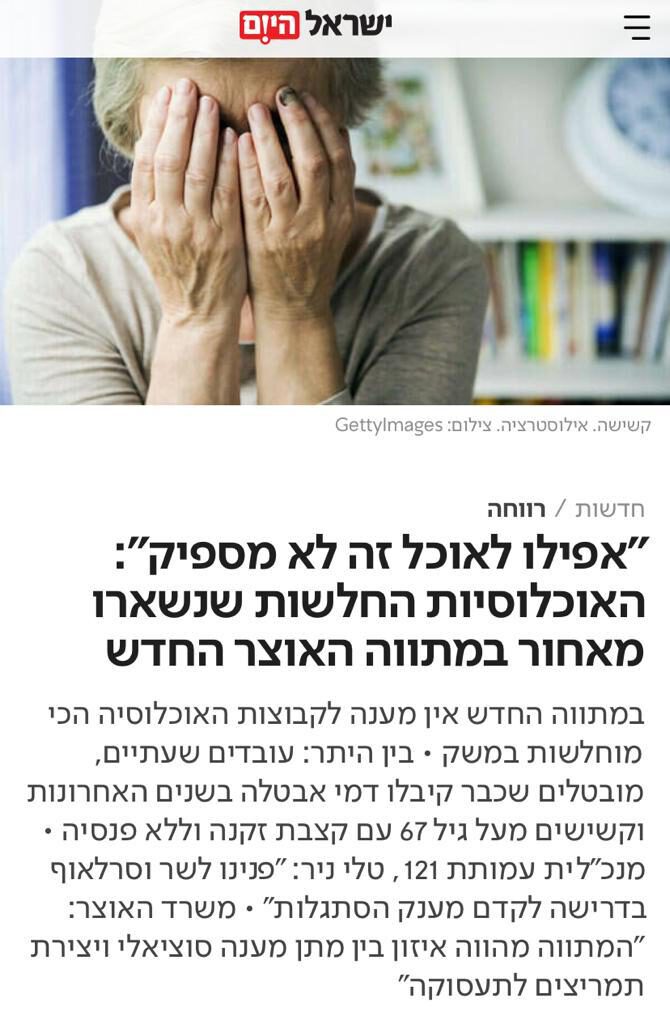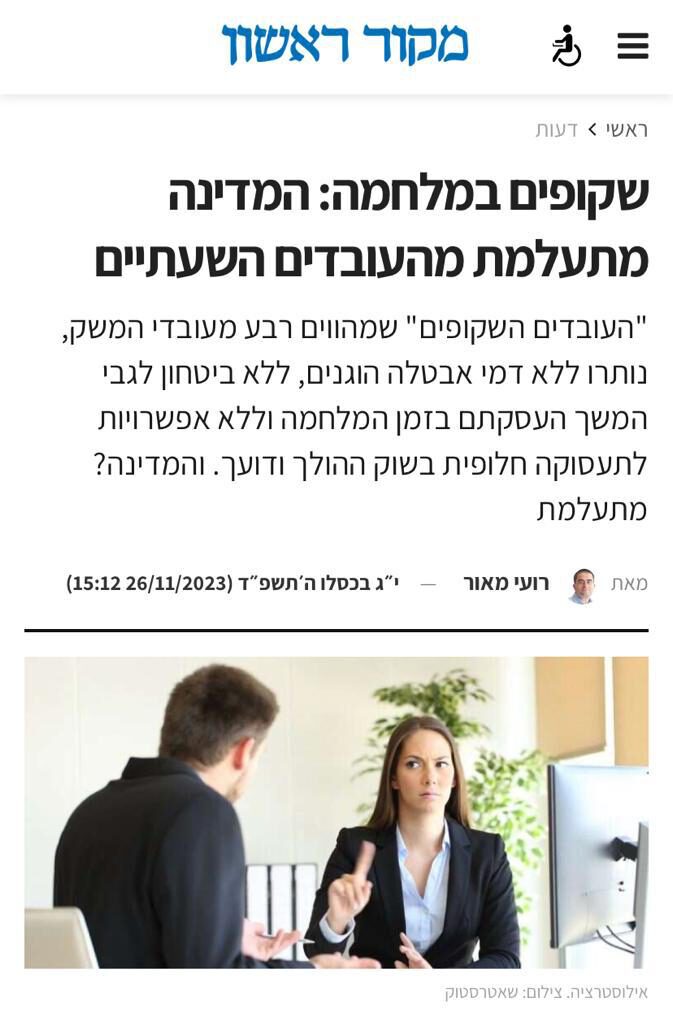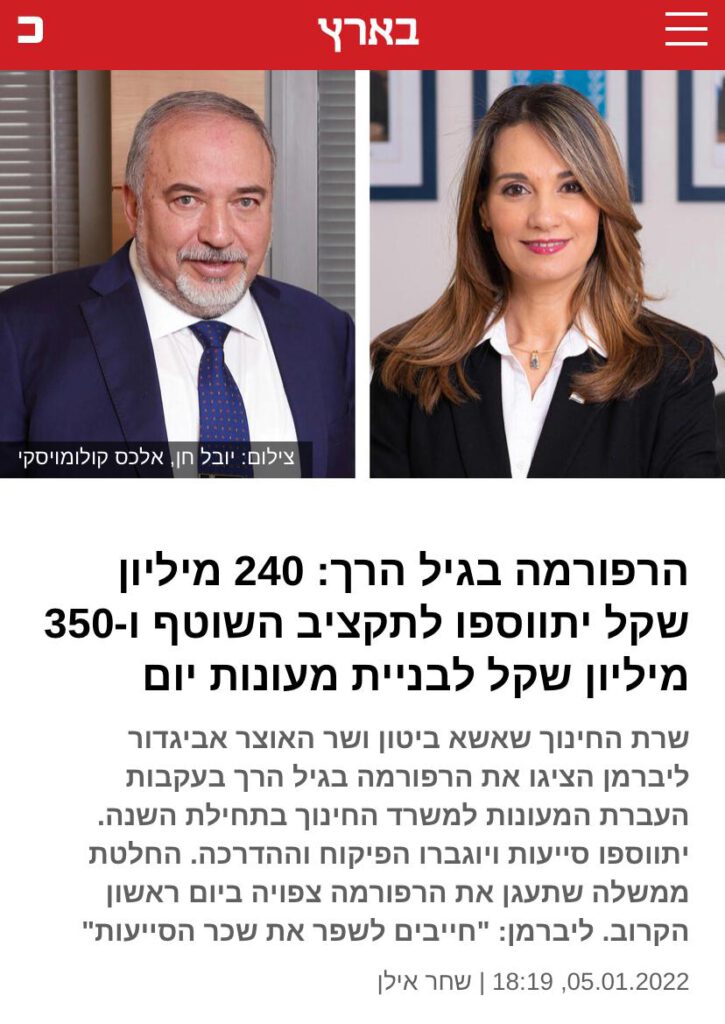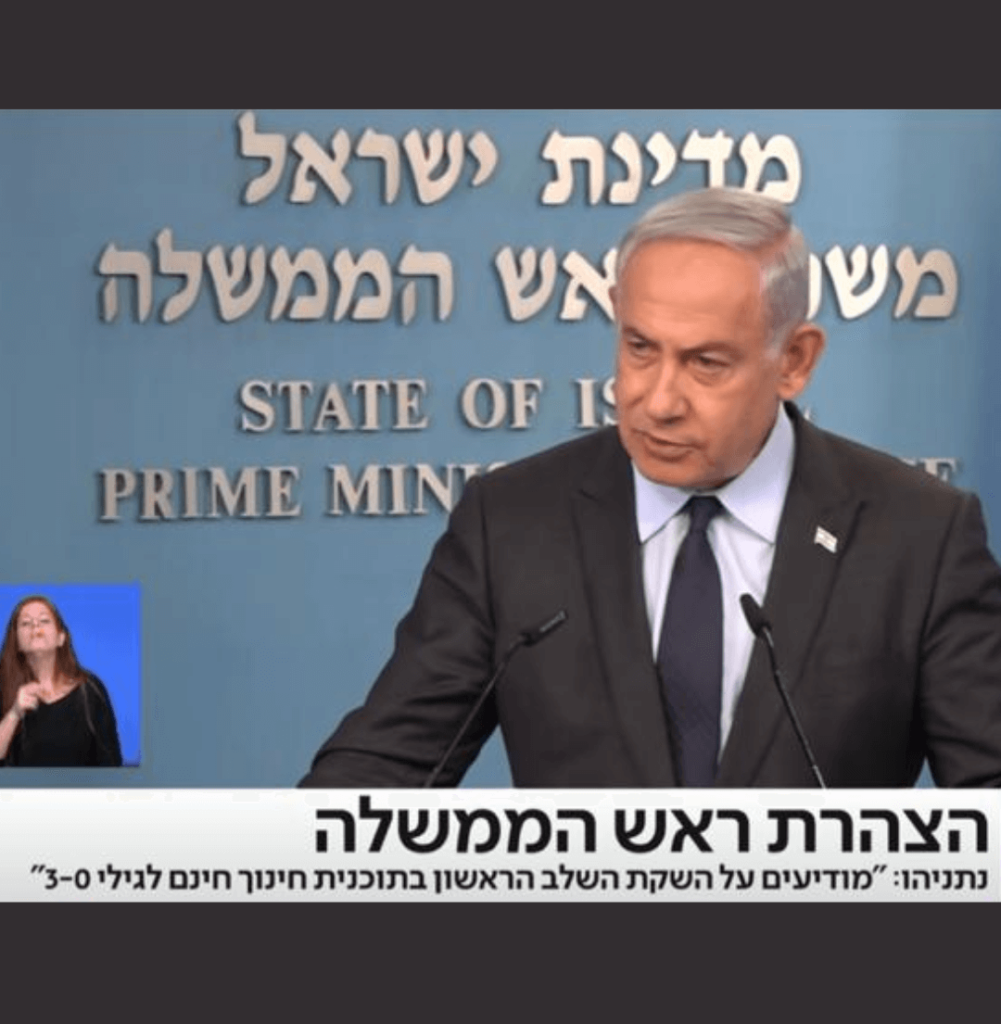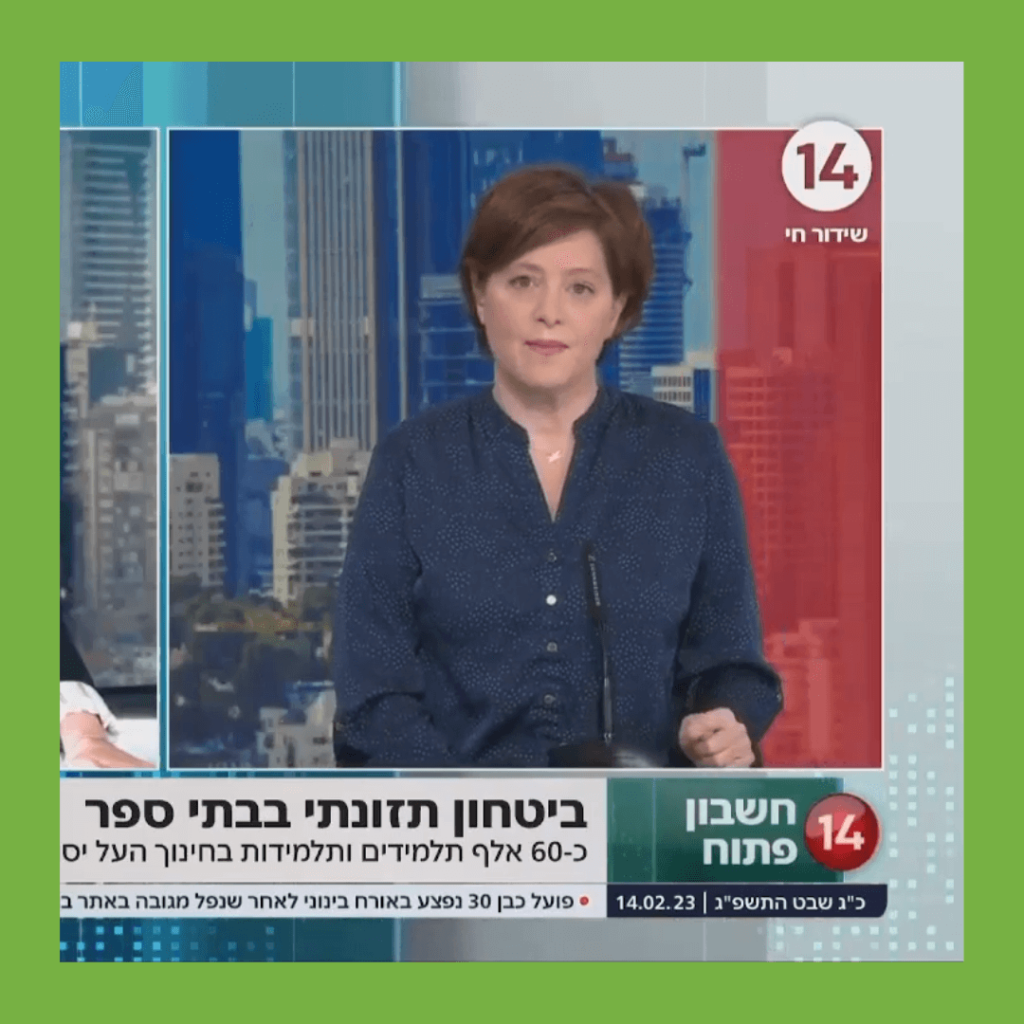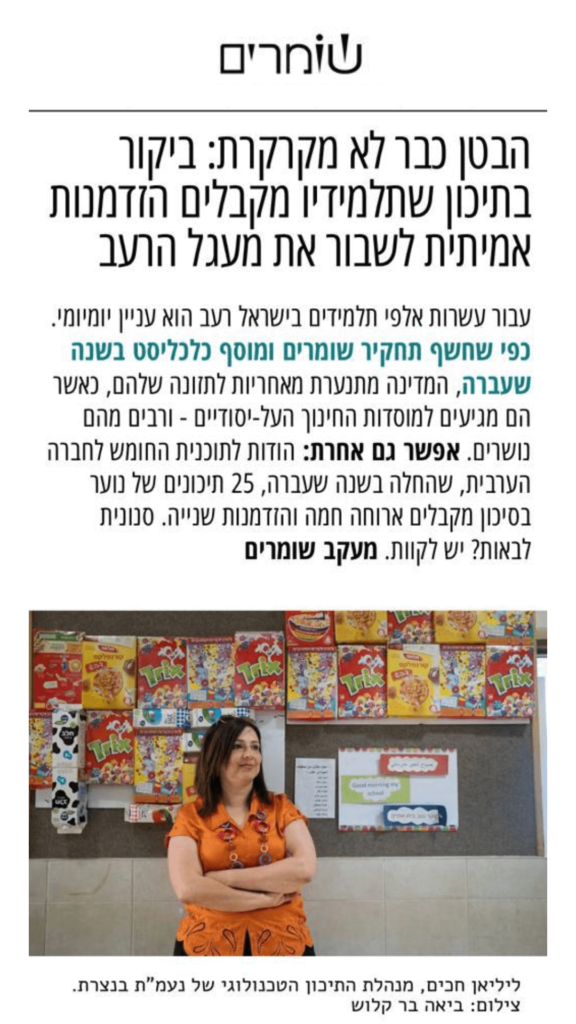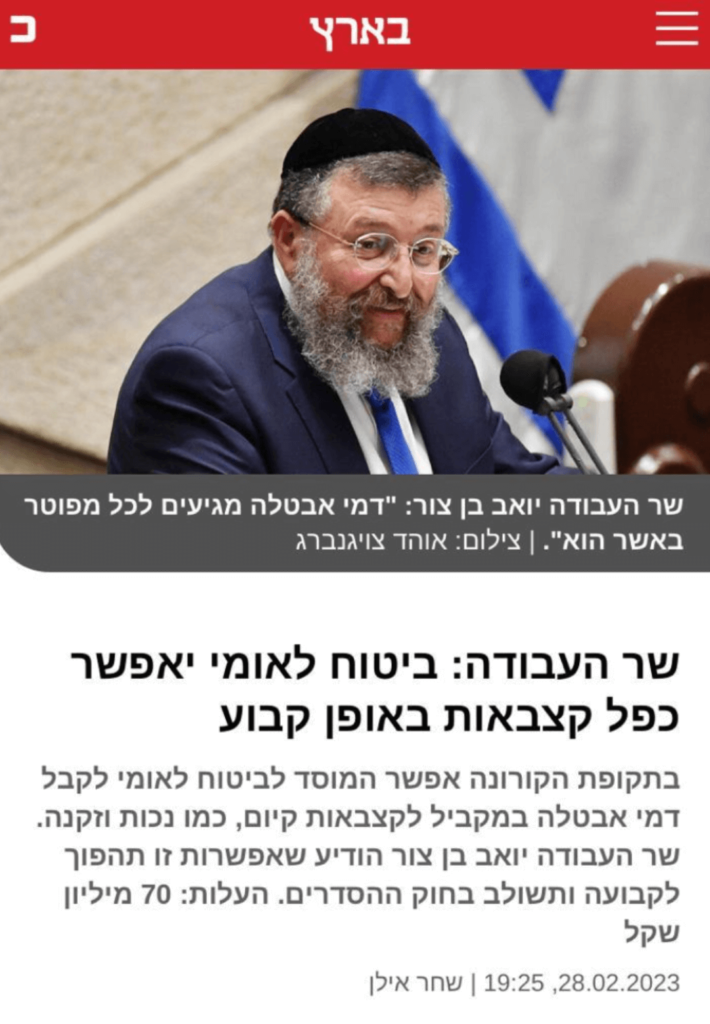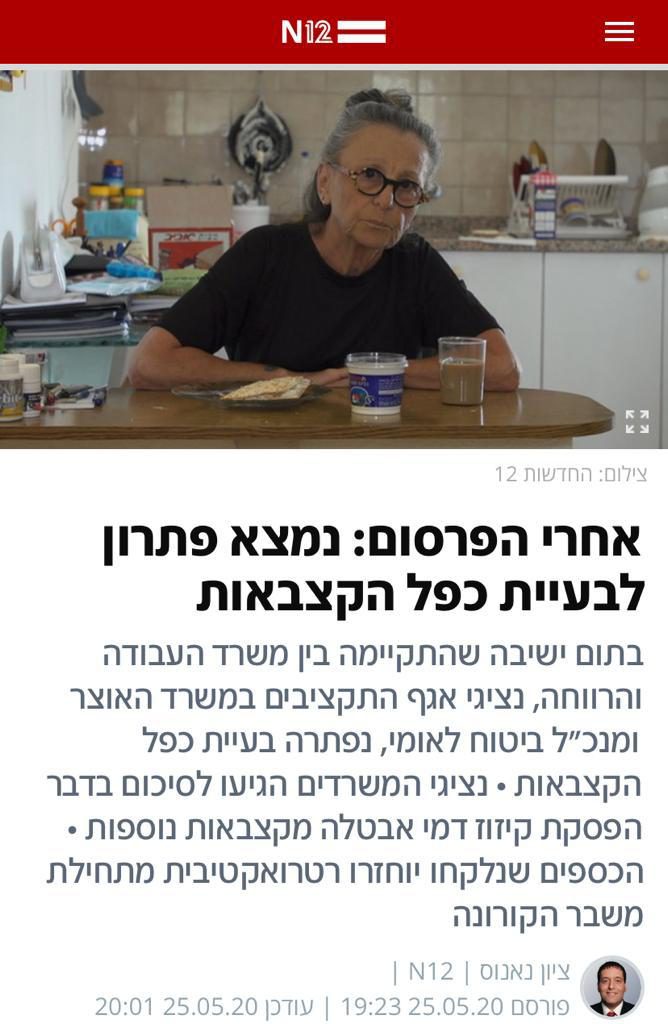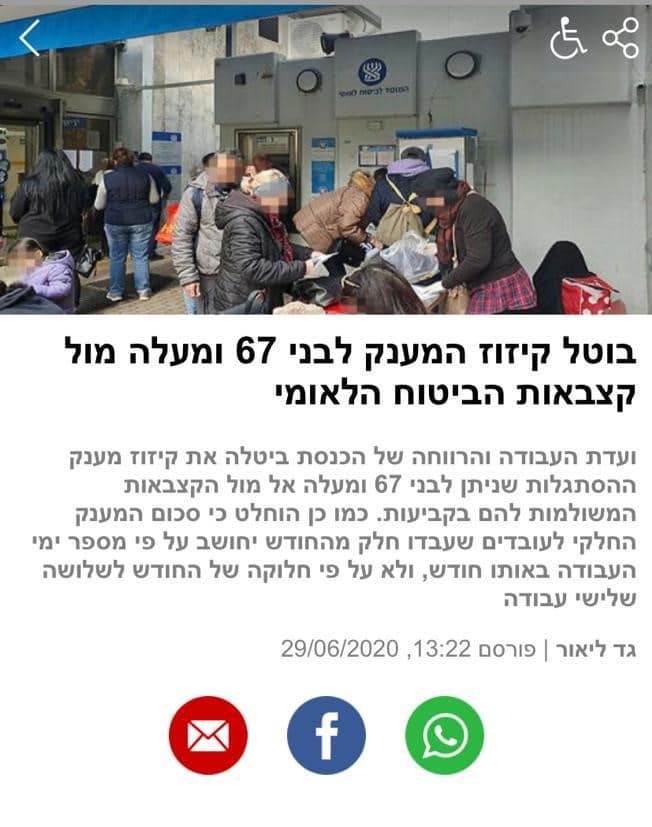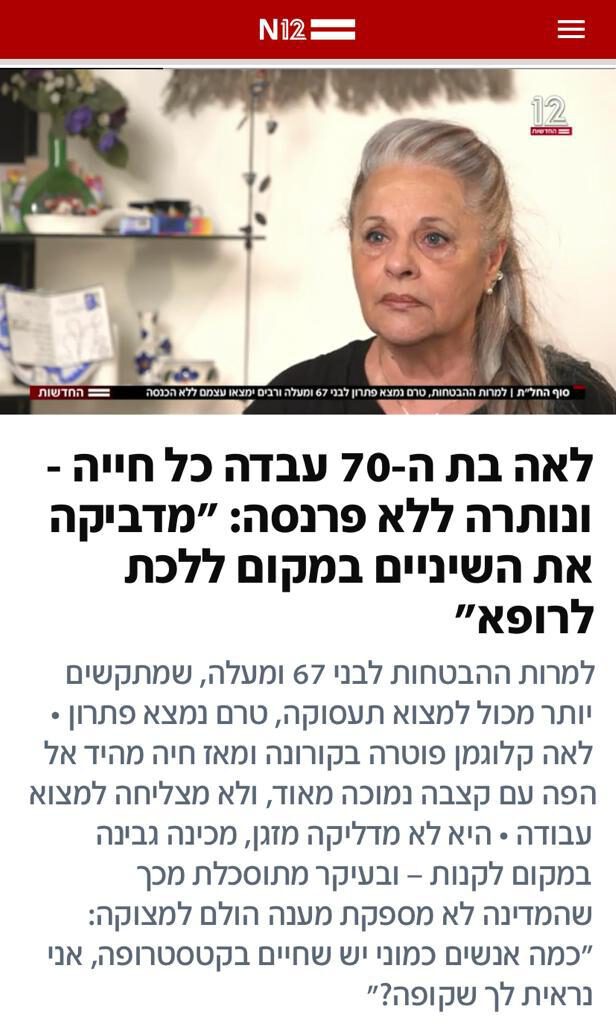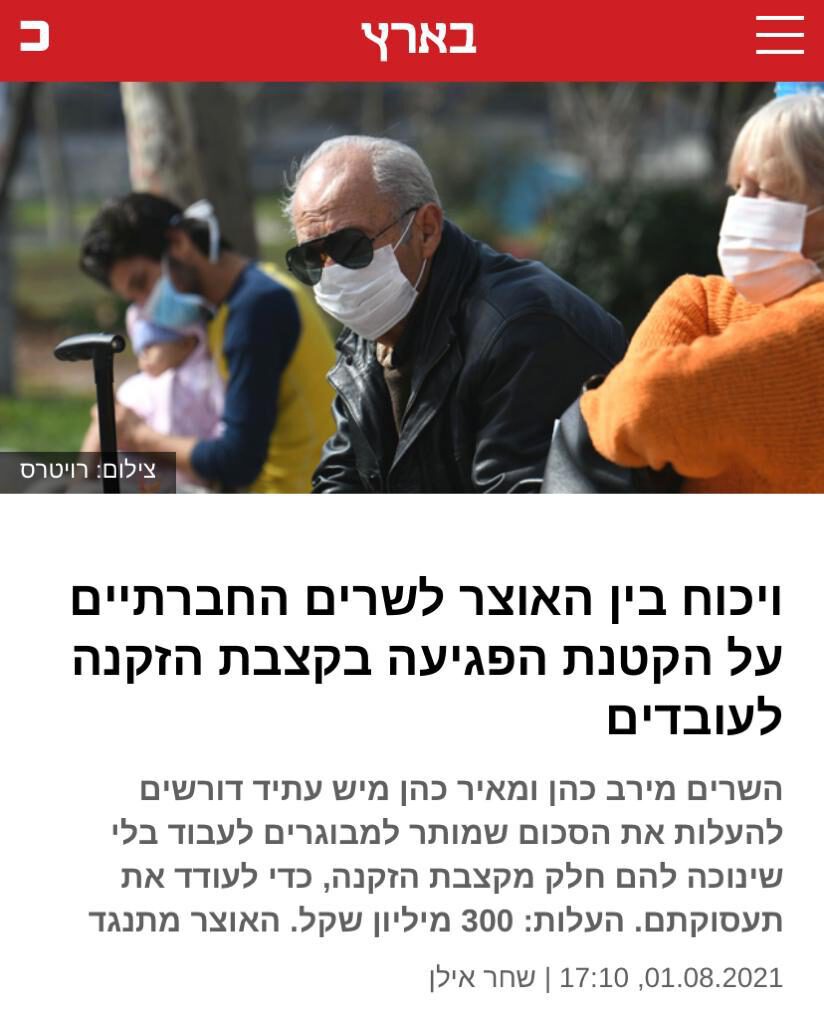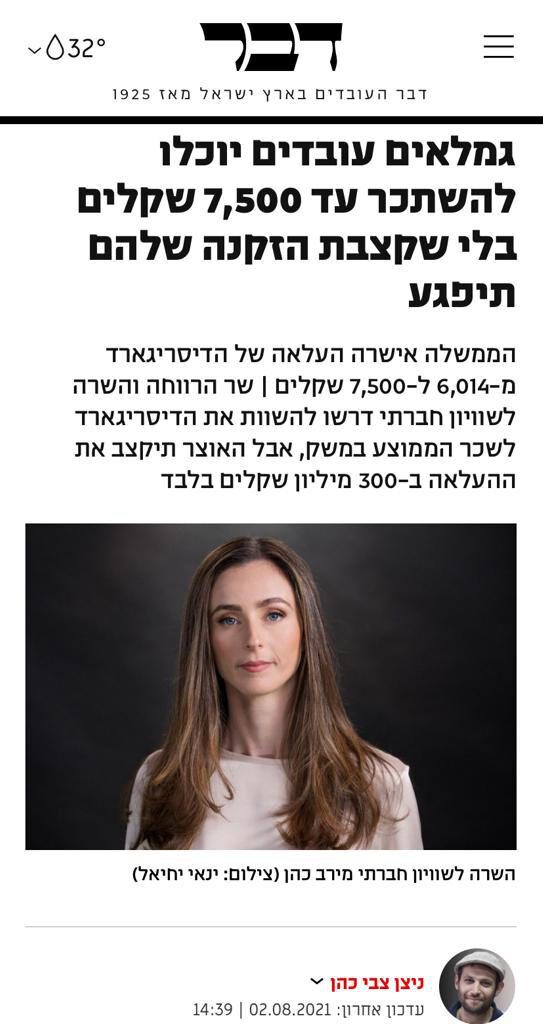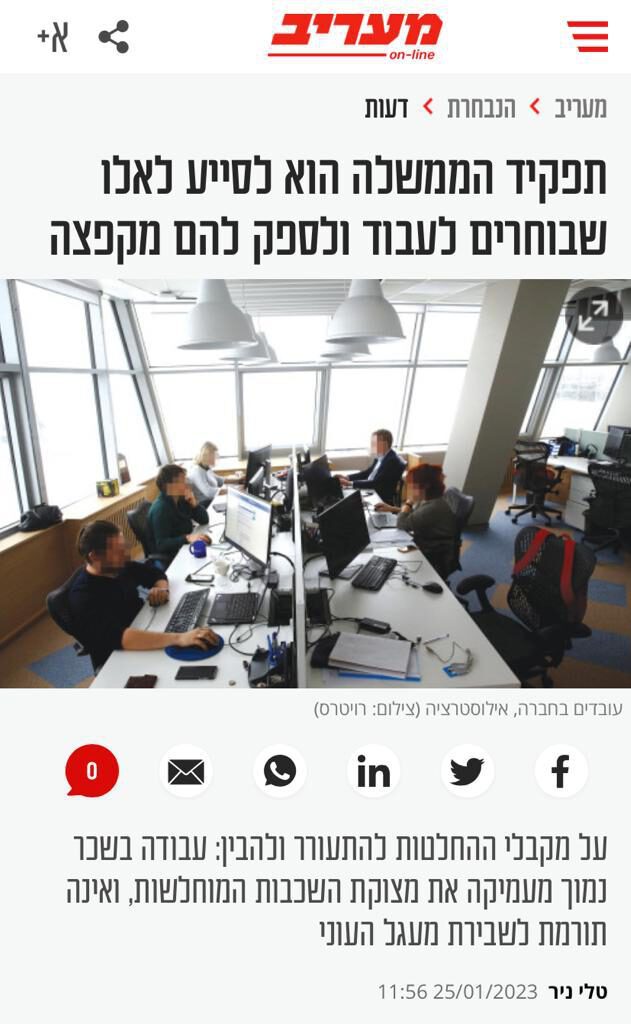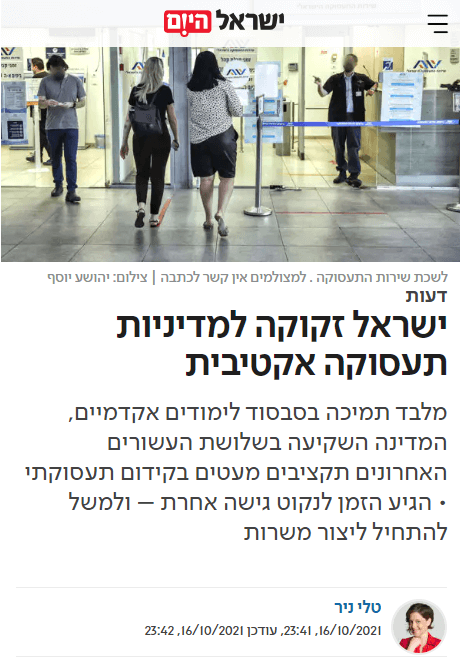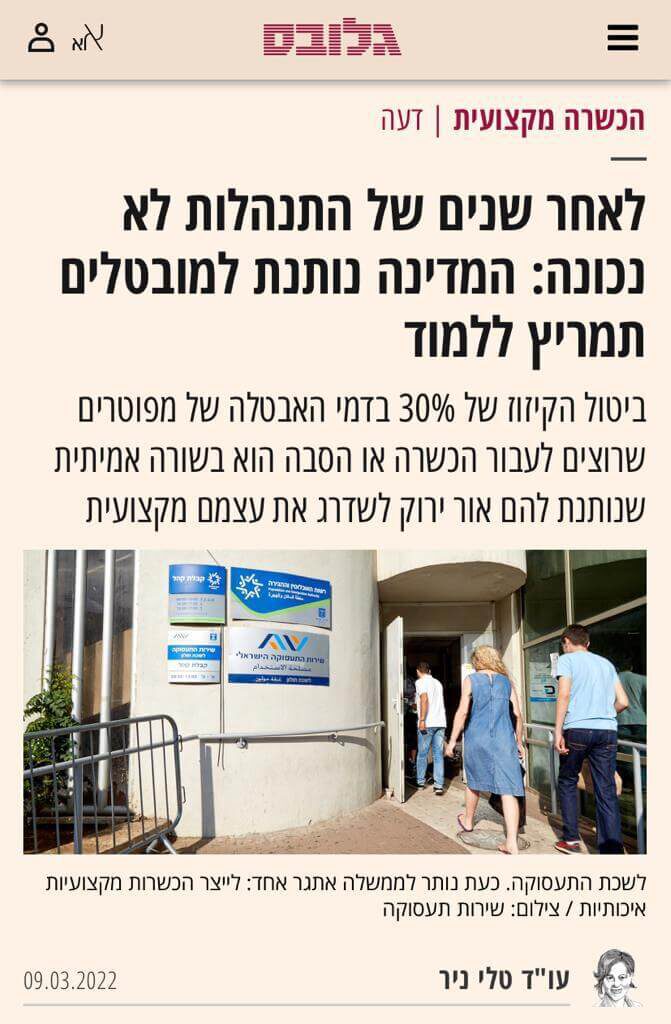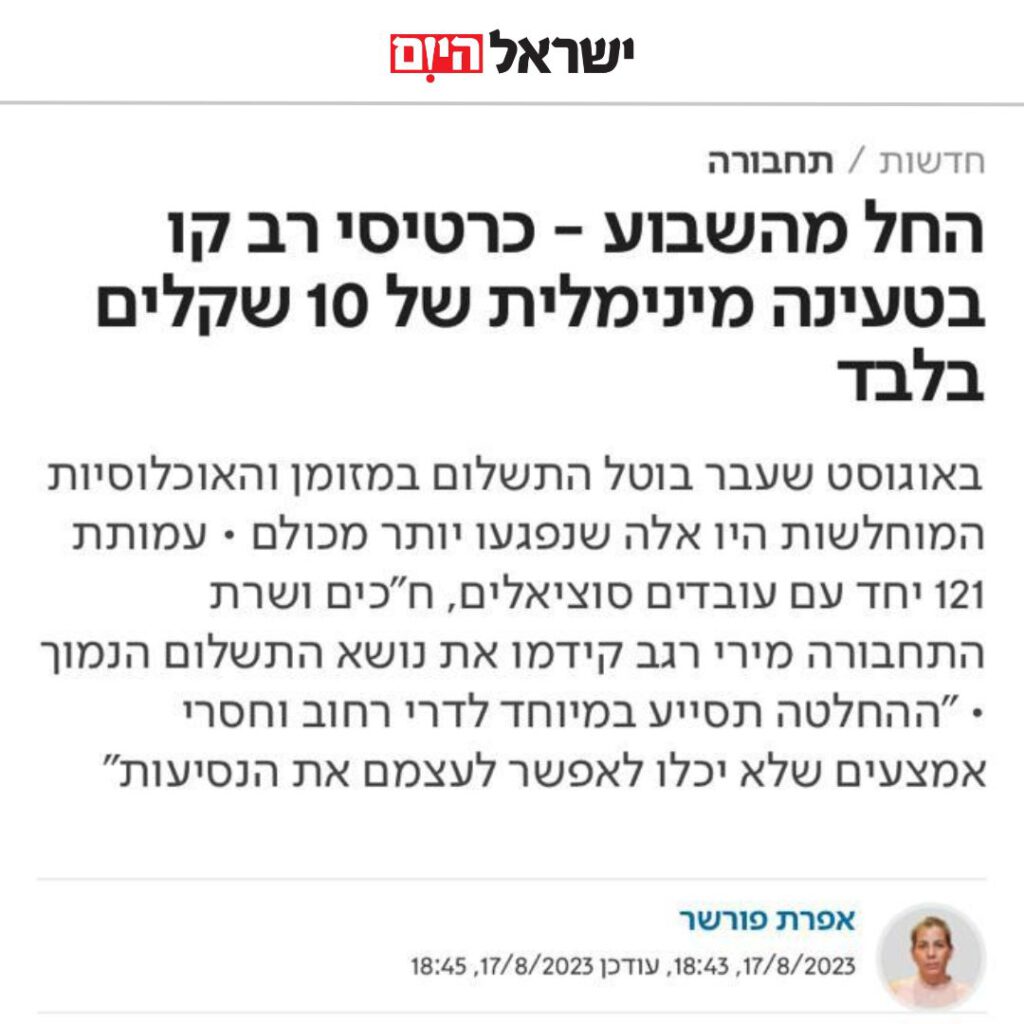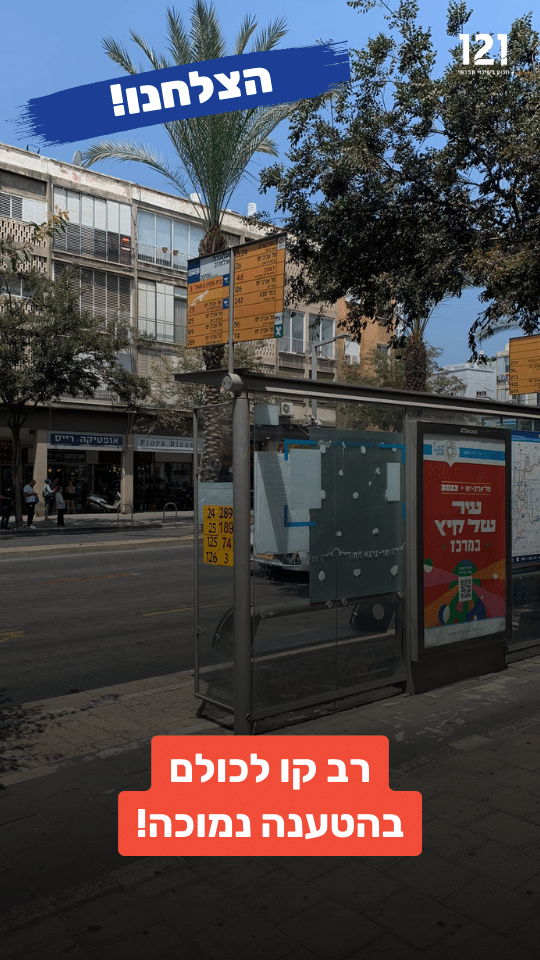Highlights
Since 2020, we have achieved significant milestones that have helped hundreds of thousands of Israelis
The total cumulative government investment in the changes we have driven during this period
#1
During the Iron Swords War: Tens of Thousands of Temporarily Laid Off Workers Received State Support Thanks to Our Efforts
Through our collaborative efforts with 50 other civil society organizations, we successfully convinced the government to provide unemployment benefits and financial assistance to workers who were laid off or temporarily released without pay during the war.
Despite initial resistance from the Ministry of Finance, the economic plan approved in November 2023 incorporated many of our key demands:
- Individuals who are laid off will now receive unemployment benefits from the very first day, without deductions for vacation days.
- A short-term layoff period of at least 14 days was approved, reducing the previous minimum of 30 days.
- Individuals aged 67 and older will receive unemployment benefits amounting to 75% of their monthly salary, capped at a maximum of 4,000 ILS.
- The qualifying period for unemployment benefits has been shortened to just 6 months of employment, and for individuals with disabilities, it is now just 3 months.
- Returning unemployed workers (those who have received unemployment benefits within the past 4 years) will not experience a reduction in their unemployment benefit period.
We are pleased to see that members of the Knesset recognized the urgent need and took action to prevent many laid-off workers from facing immediate poverty.
What's Next?
We have also called on the government to support employee retention. Our proposal includes a mechanism that allows for part-time employment while enabling workers to receive state compensation for reduced hours.
#2
Advancing Early Childhood Education: Our Proposed Government Investments Are Underway
Total Government Investment Secured: 400 Million ILS
The partnership we established, In Good Hands – The Coalition for Early Childhood Investment, which includes 60 educational and social organizations, has been working since 2020 to develop policy proposals for education for children from birth to age three and to promote these proposals with decision-makers in the government and Knesset.
Our first goal was for the government to invest in the professional development of early childhood educators. In 2022, we convinced the Ministry of Education to invest over 120 million ILS in the professional development of early childhood educators. More than 11,000 educators completed the initial training courses, using a model based on the proposals we developed. These professional tools will benefit 90,000 infants and toddlers.
In 2023, the government introduced a new early childhood education program that incorporated many of our proposals, including a budget increase for raising salaries of educators in subsidized daycare centers, enhancing their professional development, and improving the caregiver-to-child ratio. However, due to the impact of the war, the government decided in March 2024 to halve this budget from 400 million ILS to 200 million ILS, significantly reducing essential support for early childhood education.
Despite this setback, our partnership, "In Good Hands," worked tirelessly to advocate against the cuts. After the budget reduction was approved, we engaged with the Minister of Education, who announced at a conference we held in the Knesset that the budget gaps would be filled using surplus funds.
What's next? We will continue to develop and promote proposals for the right government investments to ensure quality education and care for all young children in Israel.
#3
At-Risk Students to Receive Hot Meals for the First Time
Total Government Investment Secured: 30 Million ILS
The partnership we formed, Recipe for Success – The Forum for Promoting Nutrition in Education, which includes 18 educational and social organizations, successfully convinced the Ministry of Education to adopt the first-ever government meal program for approximately 17,000 middle and high school students in at-risk schools.
In October 2022, we achieved our first milestone: The government decided to adopt the program and began implementing it in secondary schools within the Arab sector, with an annual budget of 5 million ILS. The program now benefits around 5,000 at-risk students daily.
We continued to advocate for expanding the program nationwide, engaging with decision-makers in the government and Knesset, as well as raising public awareness to ensure that no student would have to forgo their education due to hunger.
Following the Iron Swords war, the situation in at-risk schools, particularly in the northern and southern regions and in social and geographic peripheries, worsened significantly. The economic crisis caused by the war has brought new students into food insecurity, further increasing the urgent need for meal support.
Field research, discussions with students, school principals, and teachers, policy papers, participation in Knesset committees, media coverage, and social media campaigns to raise public pressure all contributed to our progress.
In September 2024, we reached a second milestone: The government decided to expand the program to all at-risk schools nationwide. This historic achievement will promote equal opportunities and enable all students to realize their potential and build a brighter future.
What's next? We will continue advocating for a national meal program to convince the state to invest the necessary budget, ensuring that no student will have to sit hungry in class.
#4
During the COVID-19 Pandemic: Tens of Thousands of Benefit Recipients Received Full Unemployment Payments Thanks to Our Efforts
Total Government Investment Secured: 870 Million ILS
According to National Insurance Law, recipients of subsistence allowances—such as old age, income support, alimony, and dependent supplements to disability benefits—are not eligible for full unemployment benefits.
Following the wave of layoffs during the COVID-19 crisis, we worked alongside dozens of social organizations and hundreds of activists to temporarily suspend the arbitrary prohibition on "double benefits," which disproportionately harms the most vulnerable individuals in Israeli society.
Together with our partners, we continued applying political, media, and public pressure on decision-makers. In early March 2022, the Knesset approved an extension of this temporary measure through the end of 2022.
What's next? We will continue to advocate for the correction of injustices and gaps in the social safety net.
#5
During the COVID-19 Pandemic: Following Our Intervention, Around 50,000 Laid-Off Workers Aged 67 and Over Received Adjustment Grants
Total Government Investment Secured: 1.5 Billion ILS
According to law, workers aged 67 and over who are laid off are not eligible for unemployment benefits. At the onset of the COVID-19 crisis, workers in this age group were among the first to be laid off or furloughed, and many faced a rapid decline into poverty.
Due to the public and political pressure we initiated, the government approved a temporary measure, which was renewed twice and expired in September 2021, providing monthly grants of up to 4,000 ILS for older laid-off workers.
What's next? We will continue to push decision-makers to expand the social safety net for elderly citizens in need.
#6
We Led the Reduction of Pension Deductions for Older Workers
Total Government Investment Secured: 350 Million ILS
Until early 2022, workers in the "conditional age" bracket (62-70 for women, 67-70 for men) could earn up to only 6,014 ILS per month before their senior citizen allowance was reduced. This legal flaw hurt many older workers who were forced to settle for lower wages to avoid reductions in their pension benefits.
In the 2021-2022 budget law, a proposal we developed alongside the “VeHadarta – The Third Power” organization and pushed with our partners in the “60 Plus Forum” was approved, raising the income limit to 8,700 ILS per month. As a result, the income of 20,000 post-retirement workers increased by an average of 1,000 ILS net per month.
What's next? We will continue to fight for the right of elderly citizens to live with dignity.
#7
High-Quality Employment Upgrade: The Government Overhauled the Vocational Training Model
Total Government Investment Secured: Approximately 600 Million ILS
After three decades of minimal state investment in worker skill development, we convinced the Ministry of Finance to invest in vocational training programs.
Together with our partners in the Springboard – Investment in Future Professions Initiative, we successfully persuaded the Ministry of Economy to adopt our proposal for reform in workforce skills development. In 2022, for the first time, most participants in government-funded training programs—approximately 17,000 men and women—were trained using a new model in collaboration with employers.
The Springboard partnership also fundamentally changed the support model for vocational training: most programs are now conducted with employer partnerships, legislative changes canceled the 30% cut in unemployment benefits for participants in training programs, and stipends were allocated for participants not eligible for unemployment benefits.
Following the war, many evacuees and those affected by job loss require employment recovery assistance, including guidance and the acquisition of new skills to help them re-enter the workforce.
Currently, we continue to lead the Springboard partnership in working with decision-makers to significantly increase government investment in this field, ensuring high-quality training and support that provide a clear employment path for everyone in need.
What's next? We will work to ensure state assistance for all those needing vocational skill upgrades and higher wages, with a focus on those whose employment was impacted by the war.
#8
We Led the Repeal of the Law That "Penalized" Unemployed Workers in Training Programs: Full Unemployment Benefits Restored
For many years, unemployed individuals participating in state-funded professional training programs were "punished" with a 30% cut in their unemployment benefits. During the COVID-19 crisis, following mass layoffs, the government and Knesset responded to our call and suspended the benefit reduction until the end of 2021.
We consistently argued that cutting unemployment benefits served as a negative incentive for the unemployed to upgrade their skills and integrate into the new job market. After leading a public and media campaign, along with intensive work with decision-makers, the unjust law was permanently repealed in early March 2022, allowing unemployed participants in training programs to receive full unemployment benefits.
What's next? We will continue to work on securing adequate stipends for those who are not eligible for unemployment benefits but want to participate in training programs to advance professionally.
#9
Thanks to Our Intervention: Minimum Recharge for Rav-Kav Cards Reduced for All
Thanks to our advocacy, as of August 2023, Rav-Kav cards—reloadable cards used for public transportation—can now be recharged with a minimum of just 10 ILS, enabling all passengers to make a single trip, similar to the options available when cash payments were accepted.
When cash payments were eliminated from public transportation in August 2022, many individuals who struggled to afford the previous minimum recharge of 30 ILS were significantly impacted. Social worker Avia Waldman from the Tel Aviv-Jaffa Homeless Support Unit highlighted how this change severely hindered efforts to assist homeless individuals.
Working alongside her and other partners in the field, we developed a solution and advocated for it with key decision-makers, including MK Uri Maklev, Deputy Minister of Transportation, Minister of Transportation Miri Regev, and MK Avraham Betzalel, Chair of the Special Committee for Reducing Social Gaps in the Periphery.
Once again, we demonstrated that the public has the power to effect meaningful change!
Want to get involved?
We'd love to hear from you!
